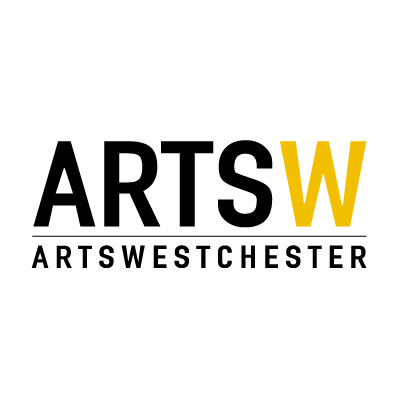Yonkers Juneteenth: An Interview with Robert Winstead
Interview with Robert Winstead, President of the Yonkers African American Heritage Committee:
Aaron Paige (AP): Would you speak a bit about the beginning of Juneteenth in Yonkers and its connection to the Yonkers African-American Heritage Committee.
Robert Winstead (RW): That’s a good question. The Yonkers African-American heritage Committee started in 1975. I was a teenager then. They started the African American Heritage Parade and that morphed into the parade and festival in the 70s. It really took root at that time. I first joined the committee in the mid-80s eighties, when I first, uh, joined the committee, right out of college. I got involved but didn’t stay involved that long. I was doing other things at the time. I took a break and then returned around 2006. The committee became a 501c3 shortly thereafter, in 2007. I was so shocked. I was like, how were you all operating and getting things done? But, you know, community people are resourceful. And so they were getting the job done. And it was coming out of their own pockets. We’re still doing that but as a 501c3 we are able to receive now. In 2006-2007 I came back as a member and then shortly went through the ranks of being a treasurer. And now I am the president. I’ve been the president of the Yonkers African-American Heritage Committee since 2016. Our main mandate was always to organize a parade and festival. We expanded that into other yearly celebrations, principally Kwanza and Black History Month. We make sure that we are doing something publicly during those times. And then we pick a number of months like Women’s History Month and Financial Literacy Month. Those are the staples and accounts for 8-9 public programs per year.
We adopted Juneteenth in 2015. Before that we were having our annual African Heritage Parade and Festival in August. Then we moved it to July. Then we decided to do it in June and combine it with Junetenth. We did that for two reasons. One was that we could get the schools involved since they were still in session. The other reason is that Juneteenth is in June! We adopted Juneteenth in 2015 and renamed our weekend cultural celebration, the Juneteenth African Heritage Celebration. And it fit very well…a celebration of freedom in addition to celebrating our history and culture. We’re grateful to lend ourselves to adopting Juneteenth because it’s educating the community and us as well.
AP: In your experience, what makes the celebration of Juneteenth in Yonkers unique?
RW: Having a chance to speak our own narratives. What’s our perspective on world events? Particularly the civil war, Juneteenth gives us an opportunity to speak and to learn about these authentically, other than what we were taught in school, or in addition to what we were taught. And also we feel it’s important to remember our ancestors. The legacy of redemption and the legacy of restoring and trying to rebuild your community as well as yourself…that is a narrative that is not played enough or not spoken about enough. So during Juneteenth we look towards music, education, business and see the positive contributions that African people have made in America, both indigenous Africans and African-Americans. And the journey still continues today, you know, as you already know what black lives matter. So being able to see the continuity of what the struggle for freedom has meant to us, is a big takeaway. We can should make a connection and understand the continuity between post civil war times, the modern civil rights movement, and Black Lives Matter.
None of us are free until we are all free. That’s the narrative we want to bring to Juneteenth, to help us see that we are each other’s keepers. And what the young people are doing today with the George Floyd police reform legislation, that’s moving the mantra of freedom a little further along. And we applaud them and want to encourage them to continue doing what they are doing….because we were once there too, doing the best we could with what we had. Our struggle for freedom continues, and believe it or not, it influences the rest of the world. Others who are oppressed see us wiggling, fighting and changing, and so they start to wiggle, fight and change.
AP: What are your Juneteenth plans for 2021?
RW: It’s three days and we’re proud to continue with the three-day tradition. With COVID last year, we had to postpone the entire celebration. This year, we’re one of the few groups who are bold enough, ready, willing, and able to go forth with our cultural celebration. This year we will be presenting our Juneteenth program on Juneteenth weekend itself. We will start off with our pan-African flag raising at city hall on June 18th around 3PM. That’s usually a 1-hour event. During the flag raising, we present our King and Queen who are our scholarship recipients. These are students from the high school who are pursuing their education. After they are announced, the King and Queen will be part of each day’s Juneteenth programming. And one of the things we’re hoping to do this year, that we would normally do, is pay tribute to the evolution of Black music. Black music month is also in June. This would be a virtual program that would be live-streamed.
On Saturday, June 19th, we will be at Trevor park all day. We start off at around 10AM with some youth activities like a kickball tournament and basketball workshops. Our first stage activity that day will be out Ujamaa educational symposium from 12-3PM. We’re looking to have Hannah Woodhouse, as our keynote speaker. During the symposium, several business persons will lead the panel discussion, which will focus on economic development and economic cooperation.
Why the symposium on economic development and cooperation? Because Juneteenth has a big impact on economics. The order by general Major Granger, who went down to Galveston, Texas… He declared that everybody was free and that the relationship between the formerly enslaved and the former slave master would now be one of employer and employee. The very announcement had an economic basis to it. But more important than that, many scholars recognize 1865 to 1915 as what they call the turning point, in Black history. In that period you see the formation of between 50 to 60 Black townships and the establishing of many HBCUs. Congress enacted the Freedom Bank. Economics and enslavement run hand in hand. Slavery was an economic venture, extracting labor for wealth. Given today’s issues of wealth inequities and wealth disparities, we feel that it is important that we address and develop better principles of economic development and cooperative development. So we’ve chosen the principle of Ujamaa, which is the fourth principle in the seven principles that we subscribe to, and we focus on it. We talk to families about taxes, insurance, etc. so that they can better navigate economic challenges.
Our of our biggest programs is on Saturday night, which is our Juneteenth youth night. Our Juneteenth has a youth division, headed by Project Inspire and they have been working with the Yonkers African-American Heritage Committee. They sponsor a talent and award show that happens just after the economic and educational symposium. And that’s really our highlight for that day. When they come on, we don’t know what to expect, but it’s always beautiful. They highlight different entrepreneurs. They highlight trailblazers in the community. They identify people who are doing good work and appreciate them for it.
On Sunday we start with church service. We bring together different church organizations to lead the church service. Historically we have two to five different churches present and they all have their morning service in the park. We have what we call a unity worship service with the intent to include other denominations. It’s usually Christian but we want to reach out to other denominations and other houses of worship whether Jewish, Muslim or other traditional worship. We want to let them know that Juneteenth is about mutual respect and wanting to learn from one another. The church service is followed by the African Healing Circle, who come with drums and dancing . They offer an African libation, opening the way. There is usually an African dance class. After that, the Juneteenth summer stage opens up with a huge variety of performances featuring comedians, spoken word artists, and culminating in a headlining band.

About ArtsWestchester
For more than 50 years, ArtsWestchester has been the community’s connection to the arts. Founded in 1965, it is the largest private not-for-profit arts council in New York State. Its mission is to create an equitable, inclusive, vibrant and sustainable Westchester County in which the arts are integral to and integrated into every facet of life. ArtsWestchester provides programs and services that enrich the lives of everyone in Westchester County. ArtsWestchester helps fund concerts, exhibitions and plays through grants; brings artists into schools and community centers; advocates for the arts; and builds audiences through diverse marketing initiatives. In 1998, ArtsWestchester purchased the nine-story neo-classical bank building at 31 Mamaroneck Avenue which has since been transformed into a multi-use resource for artists, cultural organizations and the community. A two-story gallery is located on the first floor of ArtsWestchester’s historic building on Mamaroneck Avenue. artsw.org
